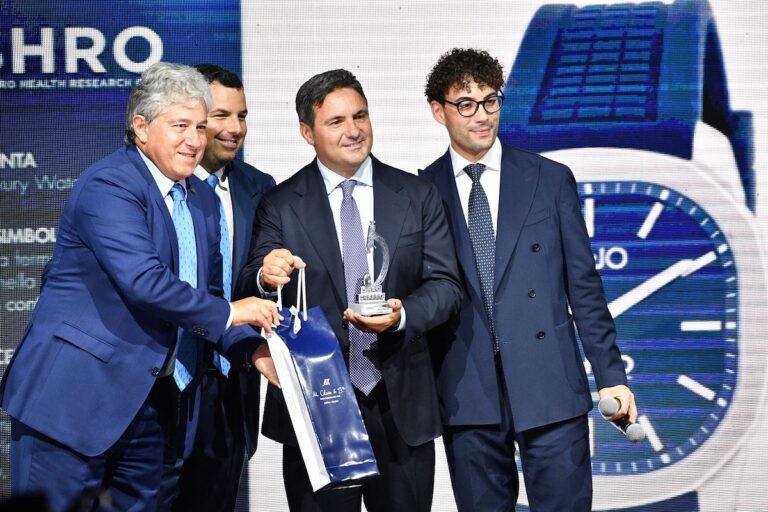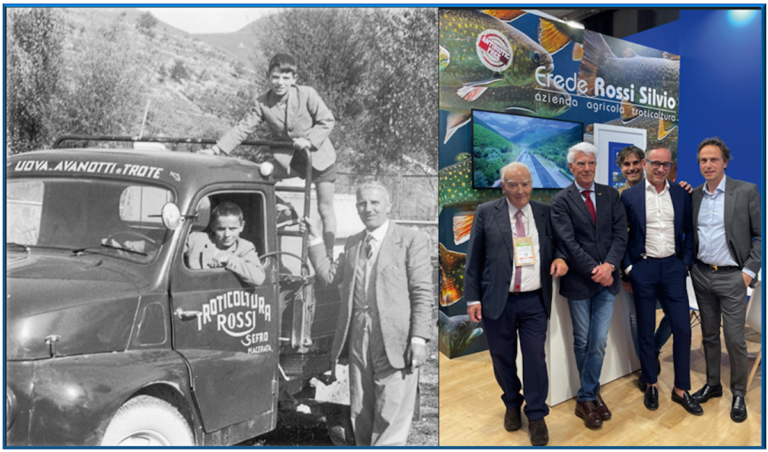The Centro Studi Italiani in Urbania (PU) celebrates its 40th anniversary with the publication of an illustrated book that traces its history from 1985 to the present day: An international family. A school. The story begins miraculously with a small ‘foreign’ seed planted in the land of Montefeltro, which sprouts and grows to reach anyone in the world who wants to experience Italy and learn about Italian culture. Forty years of firsts, thanks to courageous and innovative choices, making a virtue of necessity.
“When I founded the Centro Studi Italiani, I had no budget, just a fixed idea: to spread the Italian language and Italian culture around the world. The only problem was that I had no financial resources, but I did have a hidden ‘treasure’ (quite rare these days): six young children!”, so says Carlo Amedeo Pasotto, founder and driving force behind the school. “I am not a born entrepreneur, I had to do it out of necessity. I am a man of learning, in love with our great figures of the past, who are relevant for all seasons. We too are children of the Renaissance and believe in humanity and timeless values.”
Urbania, formerly known as Casteldurante, located just outside Urbino, is a village nestled in the heart of Montefeltro and the Italian Renaissance. It was an obvious choice for family reasons, and proved to be a winning one due to its diversity from all other schools for foreigners located in large cities and famous art cities. These attract mass tourism and crowds of students; Pasotto, on the other hand, does not seek the masses, but quality, offering the opposite: a place where the pace is human, where you can learn by living, not just by studying. “The big cities of the world are all alike: they are attractive, but anonymous and distracting (as well as dangerous), and it is difficult to relate to the locals and speak their language. In Urbania, on the other hand, everything is on a human scale. Students live the Italian way with Italians; they go to the market, talk to their neighbours, participate in city life… This is how you really learn Italian culture.”
Urbania is a unique cultural laboratory. Students, staying with host families or in comfortable furnished flats, breathe in everyday Italian life, from the sounds of cooking to the ringing of bells, from greetings in the street to local festivals and traditions. In this context, language is not just a subject of study, but a tool for immersion and interaction, and the key to accessing a culture that has been the soul of the West. “Ours is a school that adapts to the student, not the other way around,” explains Pasotto. “Only in this way will their talents emerge. Our method, inspired by the Renaissance model of the teacher-student relationship, has a distinctive feature: the centrality of the person. The training is not only educational, but also cultural and humanistic.” Over the years, the Centro Studi Italiani has become a small universe of excellence, with special programmes dedicated to art and craftsmanship, design, fashion, cuisine, opera, Italian language teaching… The opera programme is a prime example of excellence that deserves a few words. The idea was brilliant: specific Italian courses for foreign opera singers, combined with the refinement of the Italian opera repertoire (with renowned Italian coaches), and finally the debut in front of an Italian audience. In the past, there have been prestigious collaborations, while today the podium is held by the American FIO (Festival Internazionale d’Opera) and the Chinese ‘Lirica italiana per la Cina’ (China Conservatory in Beijing).
The results have therefore arrived. After the first group organised by Griffith University, which came to Urbania from Australia in December/January 1985/1986, the three summer courses in 1986 had a total of 20 students. Evidently, the courses were well received, because in the second year (1987) there were 153 students, distributed across five courses (from May to September); 350 in 1988 (in seven courses, from April to September); 453 in 1989; and 520 in 1990, with the school practically open all year round. Twenty years after its inception (2005), the total number of students had reached 8,149, well over the population of Urbania, and they came from over 120 countries around the world . Today, after forty years, it is impossible to keep track; there are at least three times as many, because in the meantime, branches have also been opened in Milan and Genoa.
The new generation of Pasottos is participating in the project, bringing innovation, technology and digital tools, while keeping the artisanal and human spirit of the early days intact. The Centre is also able to respond to new training needs at a global level. A training course has been set up for immigrants (at no cost to the state), with its own teaching methodology, textbooks and digital platform for achieving language level A2 (required to obtain a long-term residence permit) and B1 (required to obtain Italian citizenship). Courses are also organised in-house for the training of foreign workers and even for managers of multinational companies. There is also interest in the Mattei Plan to participate in the training of workers in their countries of origin. Pasotto explains: ‘Italian companies need skilled and motivated workers. We train people who not only learn a language, but also a way of working, a way of thinking and a professional ethic’.
The Centre’s international collaborations are constantly expanding and bode well for the future. The story of the Centro Studi Italiani is, after all, the story of an Italy that knows how to open up to the world while remaining true to itself. An Italy that spreads its knowledge to convey a way of living, working and thinking. And which, after forty years, continues to evolve in its fundamental continuity, always putting the person and humanity at the centre.
Note
Available on Amazon (https://www.amazon.it/Una-famiglia-internazionale-scuola-personaggi/dp/B0FBH9RB99), the new book by Carlo Amedeo Pasotto, published to celebrate the 40th anniversary of the Centro Studi Italiani, entitled: “Una famiglia internazionale – Una scuola”
The book recounts the first 40 years of the Centro Studi Italiani: VIP’s, unique and incredible experiences, and the adventures of those who wish to learn more about the Bel Paese and the beautiful language of Dante.












